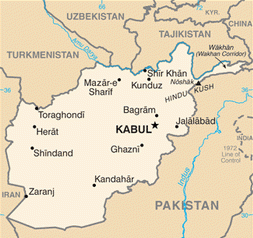|
|
|
Australia has tried to implement the Shariah
compliant methods of financing into the country and are encouraged to
embrace Islamic banking. Islamic banking could help the Australian
Government overcome infrastructure funding shortfalls, an Australian
finance head says.
The head of Australia's first Islamic finance
company, Talal Yassine, met with government ministers in Australia's
capital, Canberra, this week.
"We are not bringing Sharia law in any way to
Australia," he said."Islamic investment principles are all about value
and conservatism and about investing in worthwhile things that are
ultra-ethical - and I think I should be extraordinarily clear about
that, there is nothing to fear here".
Mr Yassine said Islamic investments avoid debt."It
does not use the concept of interest and money making money," he
said."It is more of a joint venture kind of approach and it avoids moral
hazard investments - tobacco, alcohol, the gambling, armaments.
"And basically it is a really conservative way of
investing for value without using any sexy financial engineering that
we've seen so much of and which has caused so much damage in the current
world economic environment".
But Mr Yassine said some changes could be made by the
Australian Government to encourage Islamic investment in Australia.Mr
Yassine said a simple example would be that in Australia a financial
organisation needs to quote an interest rate to lend money, but Islamic
financiers don't charge interest.
Mr Yassine said making some changes to allow for the
differences in Islamic banking would benefit Australia."The Islamic
finance industry is worth at least $US1 trillion and growing at a very
significant rate per annum," he said."And if we had a tiny slice of
that, a one per cent, we are talking about multi billions of dollars".
|
Egypt's notorious emergency law expired Thursday,
ending more than 30 years of broad powers to
arrest and detain for a police force accused of
widespread human rights abuses.
The
military rulers who took charge from ousted
President Hosni Mubarak indicated they have no
intention to renew the law, saying they will
continue to be in charge of the country's security
after it expired and until an elected civilian
authority was in charge.
"The
significance of the expiration of the law is
huge," said Heba Morayef, a researcher with Human
Rights Watch. "It is the symbolism attached to it"
as one of the main tools of oppression under
Mubarak's rule, she said.
"This
is an end of exceptional measures that provided
cover to human rights abuses such as torture and
enforced disappeared," she said.
After
Mubarak's ouster in an uprising last year, the
military rulers who took over amended the law to
limit its use to cases of thuggery and the
spreading of rumors.
Mubarak's regime justified the continued use of
the law to crack down on terrorism, drug
trafficking and to impose speedy justice on
activities deemed threats to national security.
But human rights groups and activists said it gave
security agencies extensive powers to detain, try
without defendant rights, and crack down on
opponents.
The
uprising was partially fueled because of the
abuses of the police force and it vented anger
against the symbols of the security agencies. The
lifting of the law was a key demand by the
pro-democracy youth groups that engineered the
uprising 15 months ago.
Days
into the uprising, the police force all but
disappeared from the streets, leaving the
country's security largely in the hands of the
military rulers. Since, there have been calls to
reform the police force but they have not really
gotten off the ground.
On
Thursday, the military rulers who took charge from
Mubarak said they will continue to be in charge of
the country's security after the expiration of the
law and until they transfer power to an elected
civilian authority.
The
military had said it will hand over power to a
democratically elected government by the end of
June. A runoff between two top presidential
candidates on June 16-17 is the final phase of the
transition to democratic rule.










 For
the detainees, nothing has really changed. They’re still stuck on a US
military base, with their “administrative detention” nominally under
Afghan control,
For
the detainees, nothing has really changed. They’re still stuck on a US
military base, with their “administrative detention” nominally under
Afghan control,